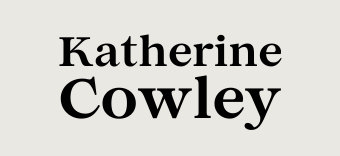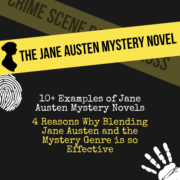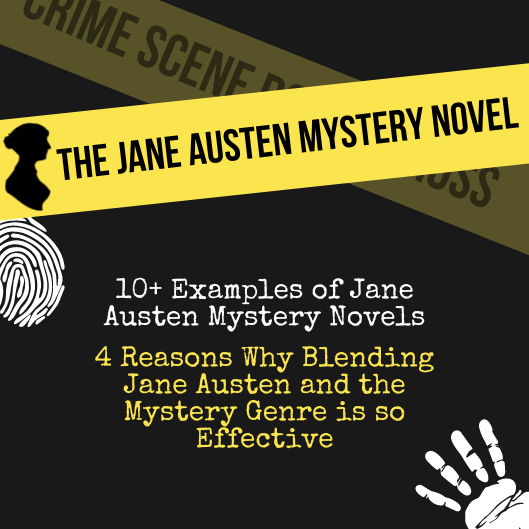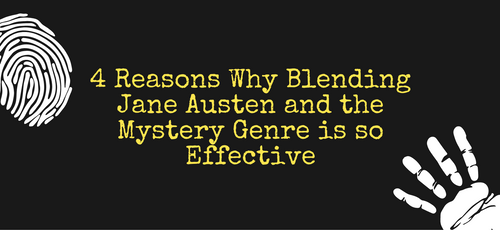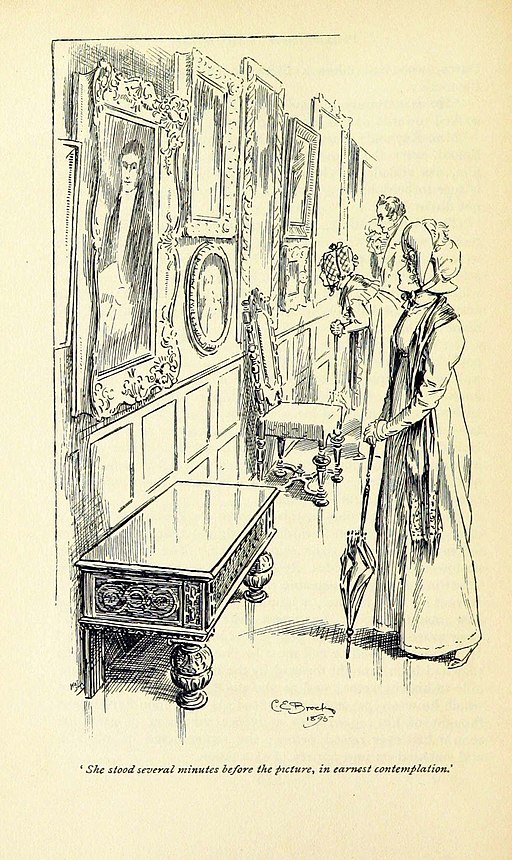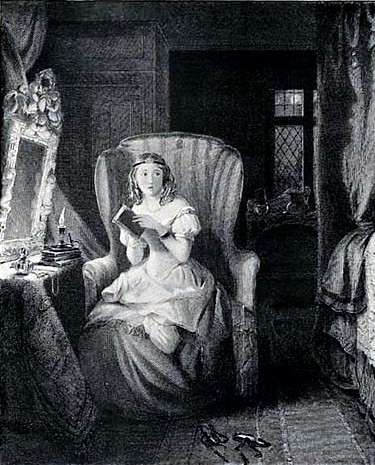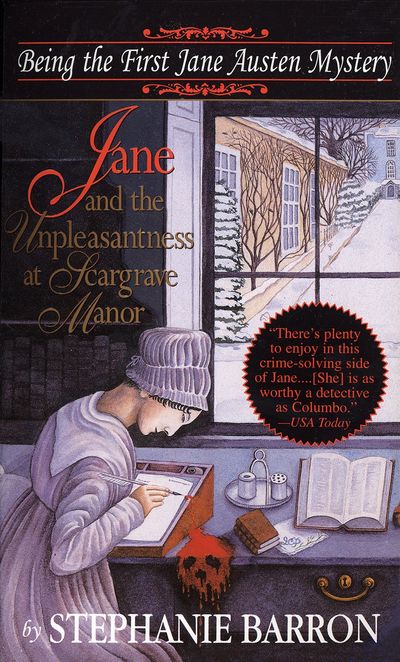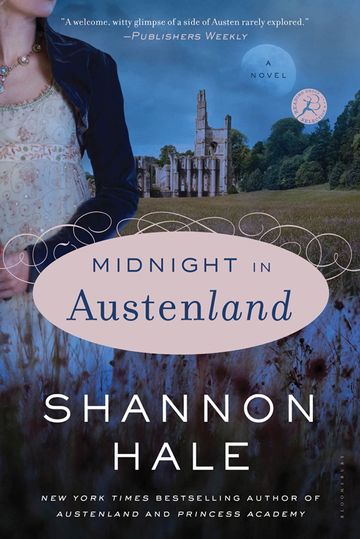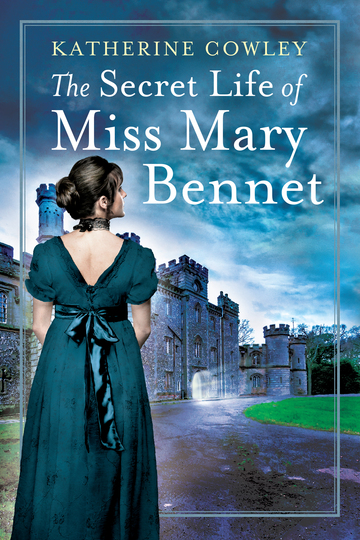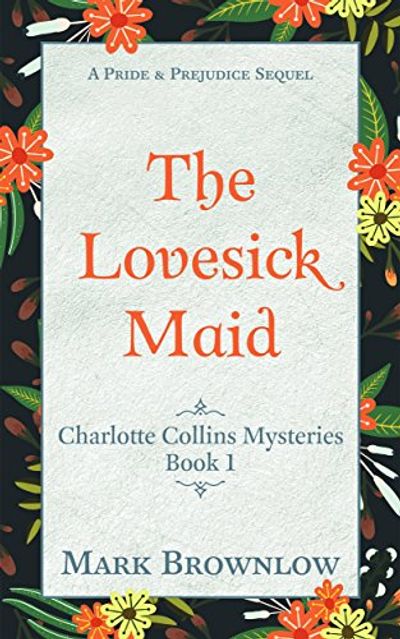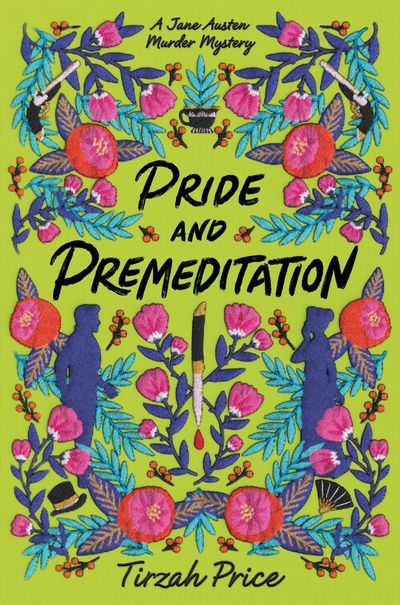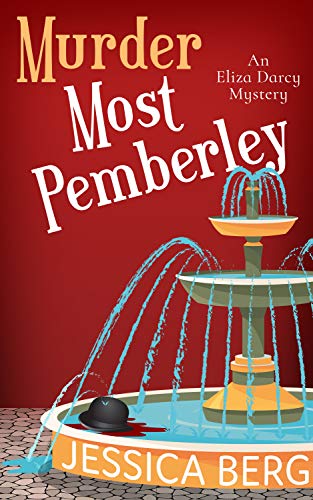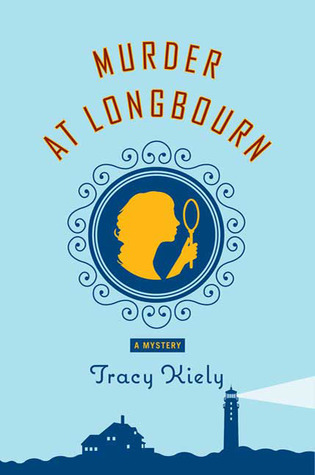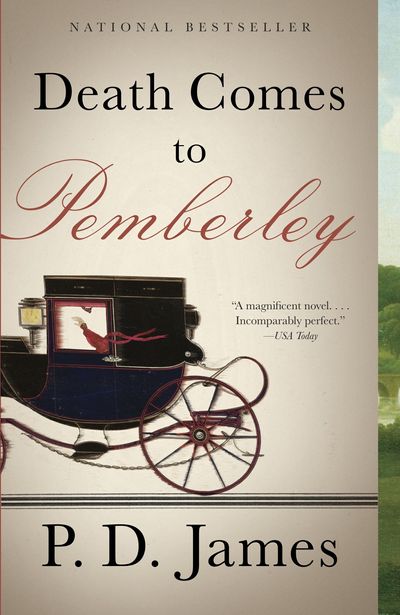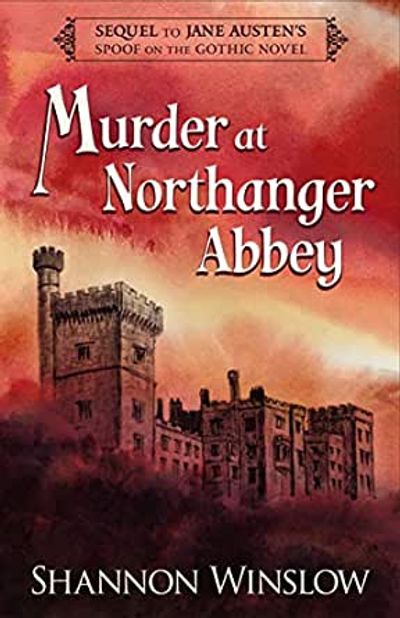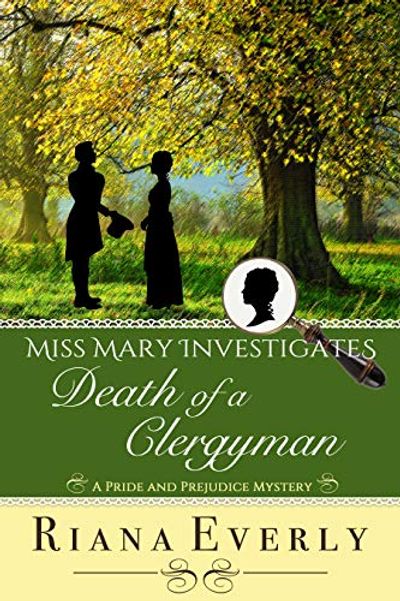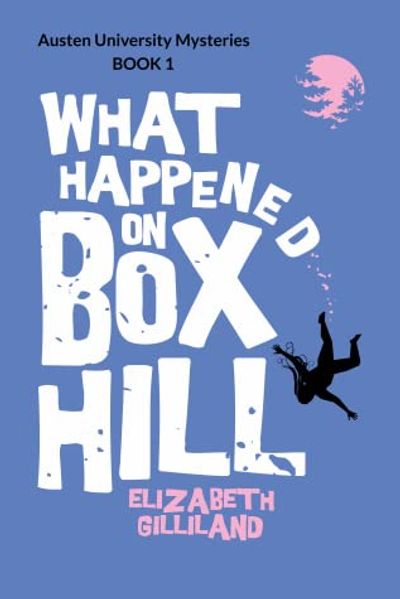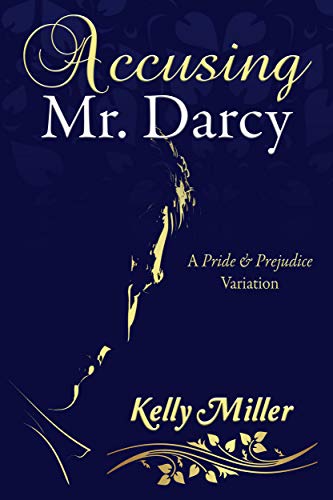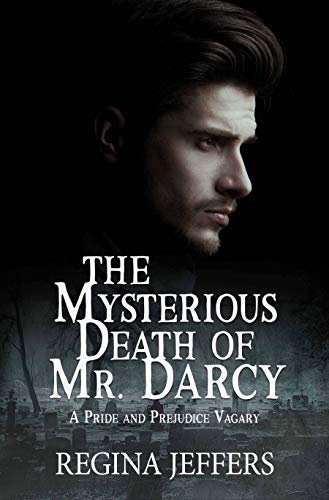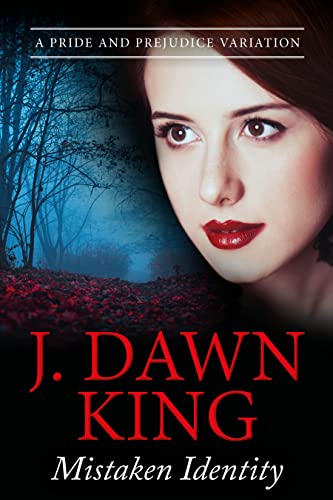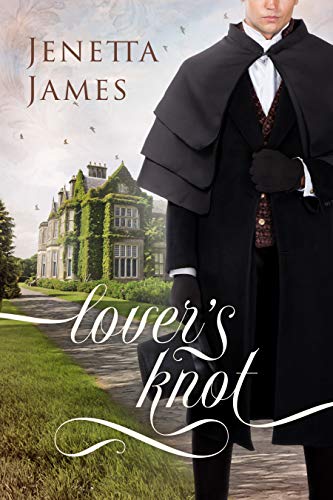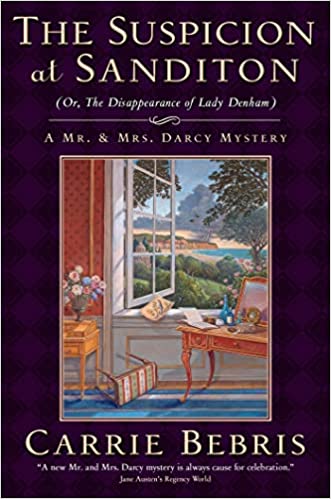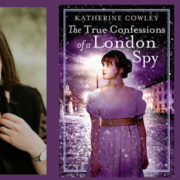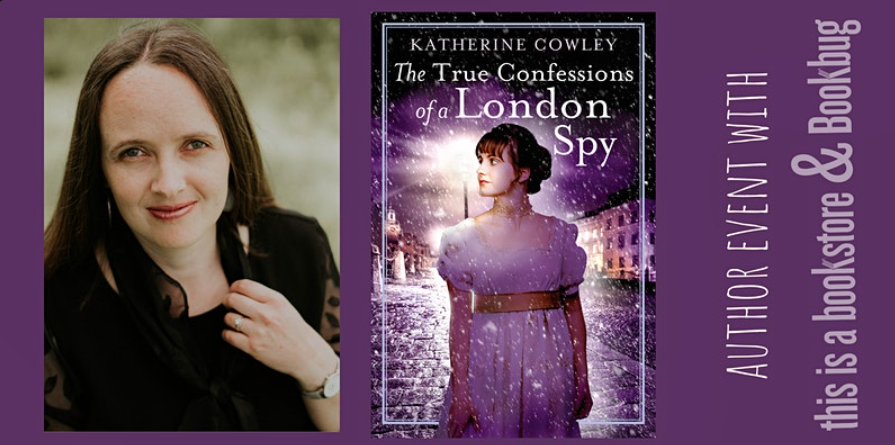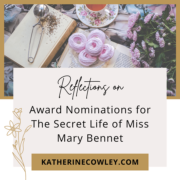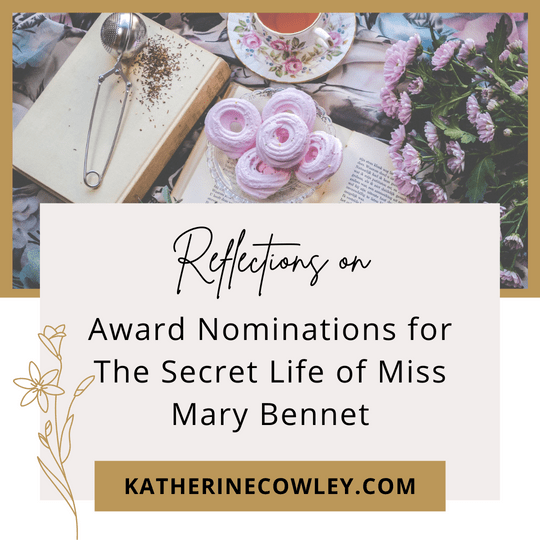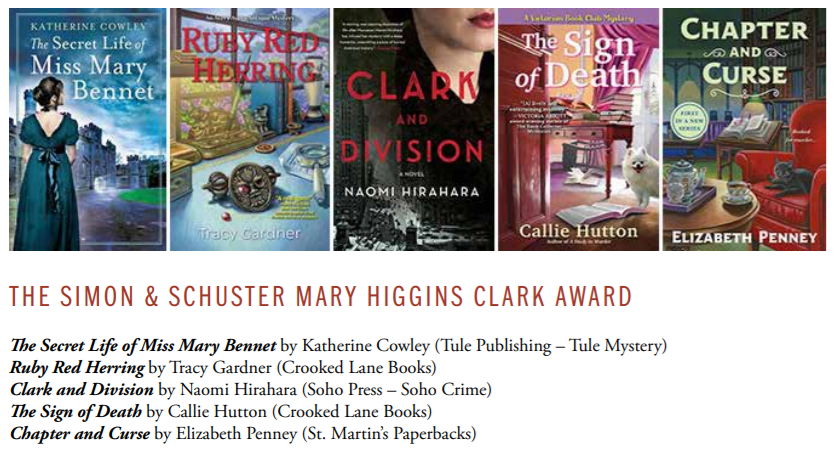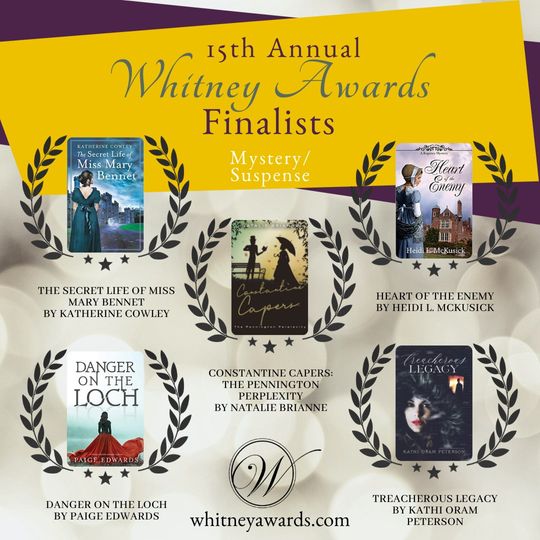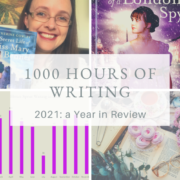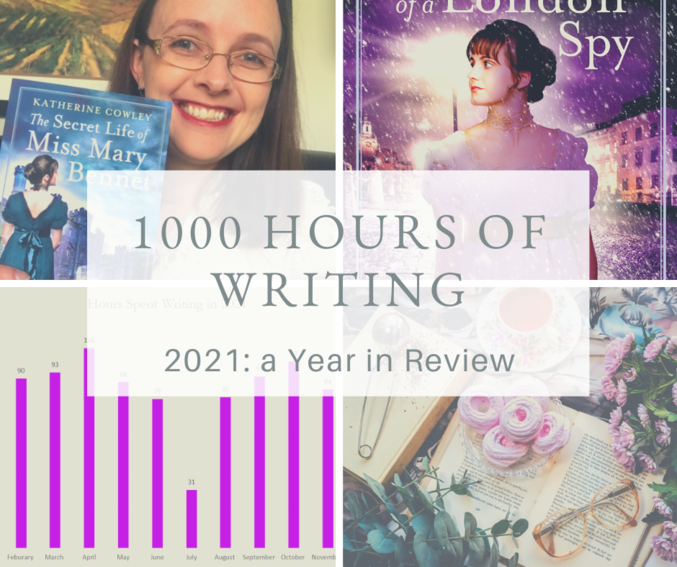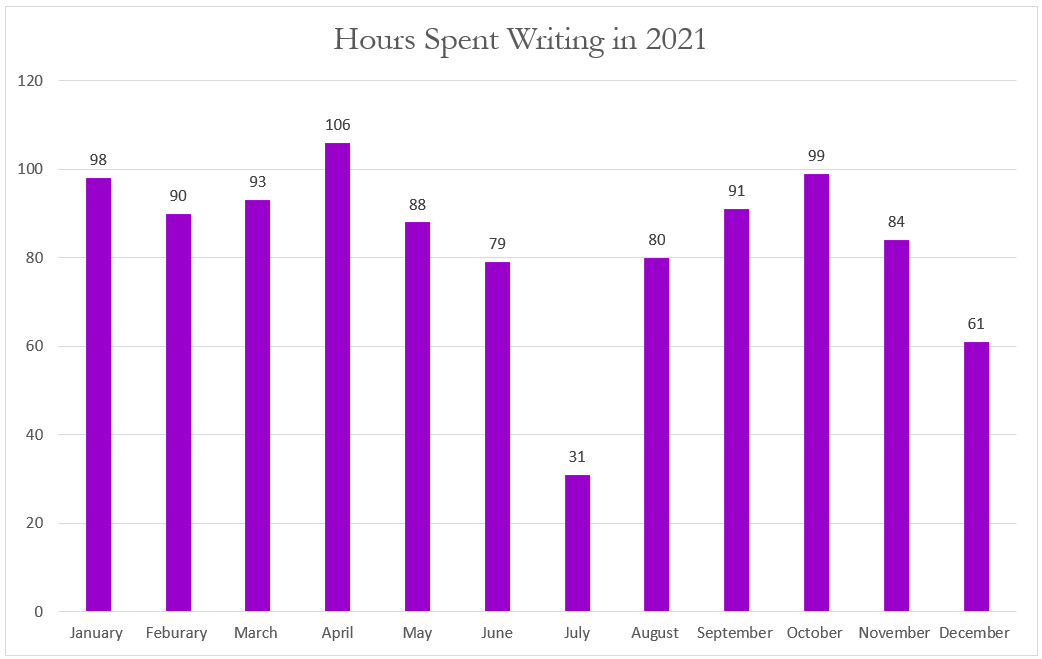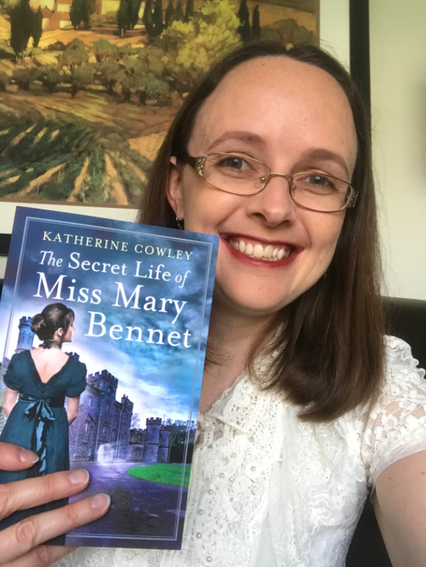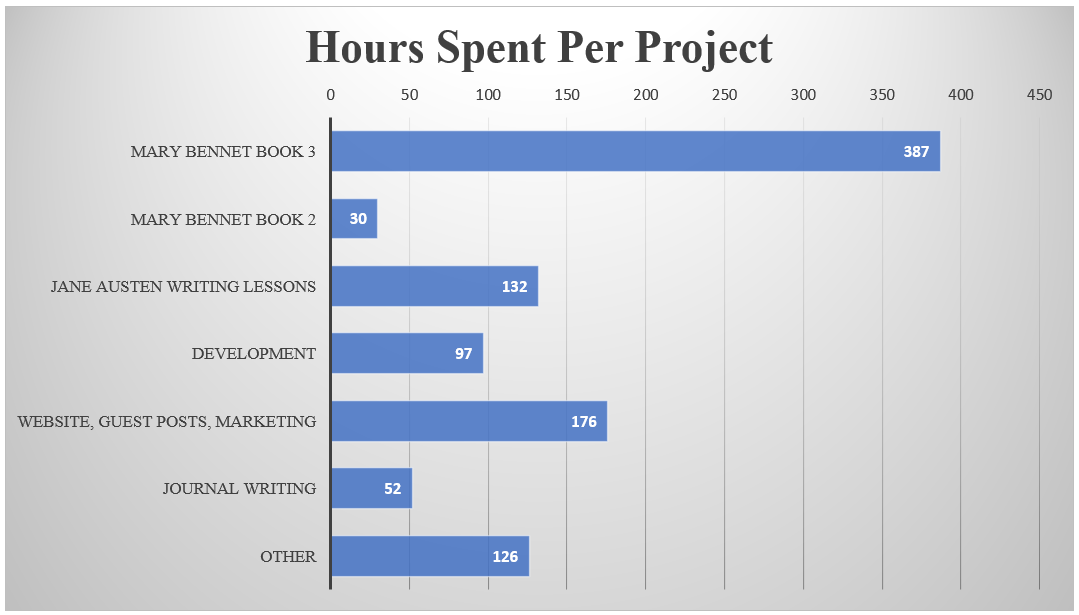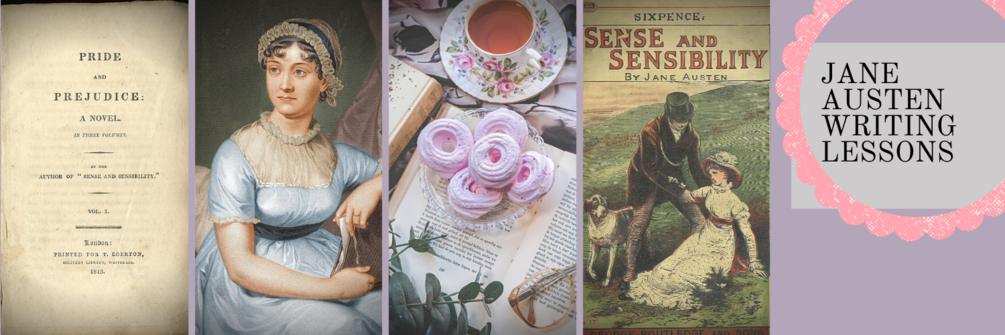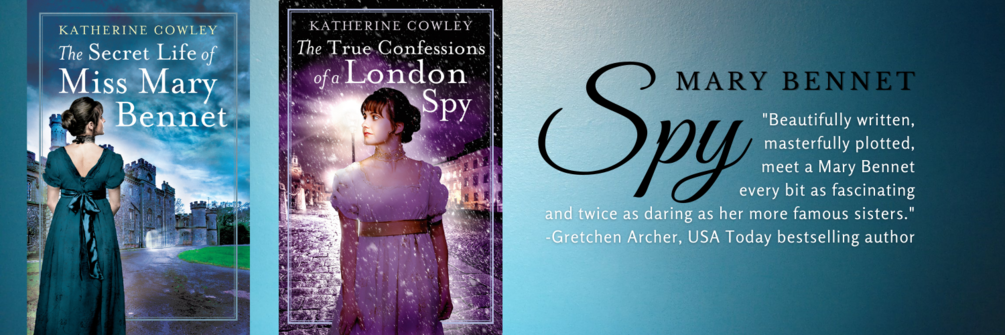The Jane Austen Mystery Novel
I’ve written three Jane Austen mystery novels, so it’s a genre that is dear to my heart. New Jane Austen mystery novels are being published each year, so I’d like to investigate what has led to the Austenesque mystery surge, and showcase some prime examples of the genre.
First, let’s start with a definition. Then we’ll look at why blending Jane Austen and the mystery genre is so effective, and then I’ll give 10+ examples of books that fall into this genre.
What is a Jane Austen mystery novel?
A Jane Austen mystery novel is a mystery story that uses Austen’s novels as its base, either by injecting a mystery into one of the original tales, using her characters to solve mysteries beyond the original stories, transforming Jane Austen herself into a sleuth, or telling a modern-day mystery with a strong Jane Austen connection.
Why Blending Jane Austen and the Mystery Genre is so Effective
First, all of Jane Austen’s novels are about social tensions and societal fissures—money and financial distress, love and jealousy, secrets and miscommunication, power and the powerless—and it is at these fissures, these moments of tension, when crime often occurs.
Second, Austen’s novels are deep studies into character: in each, the protagonist must try to understand others in a detective-like manner. It’s a quest to unravel motivations, character history, and unstated desires, especially when these desires contradict with the face that a person displays to the public.
In Pride and Prejudice, there’s a delightful exchange as Elizabeth Bennet and Mr. Darcy are dancing with each other:
“May I ask to what these questions tend?” [said Mr. Darcy.]
“Merely to the illustration of your character,” said she, endeavouring to shake off her gravity. “I am trying to make it out.”
“And what is your success?”
She shook her head. “I do not get on at all. I hear such different accounts of you as puzzle me exceedingly.”
1895 C. E. Brock illustration of Elizabeth contemplating Mr. Darcy’s portrait as she attempts to understand him (image in public domain)
After much trial and error, by gathering the accounts of others and making her own personal observations, Elizabeth reaches a conclusion on Mr. Darcy’s character, and it’s a positive one. Cue the wedding bells.
The third reason that Jane Austen and mystery combine so well is that Austen is already using many mystery conventions. In 1988, Ellen R. Belton published an article in the journal Nineteenth-century Literature titled “Mystery Without Murder: The Detective Plots of Jane Austen.” Belton argues that all of Austen’s novels are in fact detective novels in which the heroines are “not investigating criminals, but potential marriage partners.” Austen uses countless mystery techniques, including the juxtaposition of seemingly random events, “the embedding of important information in a mass of unimportant detail,” selective disclosure of viewpoints, red herrings, mysteries that once revealed disclose “deeper mysteries,” and “clues that allow us, if we are clever, to solve the mysteries ahead of the heroine.” Ultimately, each of Austen’s novels is structured as a mystery, and the goal is not to simply unravel what happened or “who did it,” but to come to what today we would call an underlying psychological understanding of people and events.
One of Jane Austen’s novels, Northanger Abbey, plays directly with the conventions of the mystery novel. It’s written as a pastiche of the Gothic novel, and the main character, Catherine Morland, sees herself as a protagonist in such a story.
1833 Illustration of Catherine Morland reading (and scaring herself with) a Gothic novel, illustrator unknown (image in public domain)
While staying as a guest at the mysterious, ominous Northanger Abbey, Catherine searches for clues to help her unravel the mystery of the murdered Mrs. Tilney. At this point, Austen turns the genre on its head: Mrs. Tilney was not murdered after all, and no crime has been committed (unless you count being insufferable, overbearing, and mildly vindictive as a crime). Yet Catherine Morland does learn to read character, and she discovers many truths about others and herself in the process.
The fourth and final reason is that while Jane Austen completed only six novels before her early death, the world she penned is expansive, full of wonder and potential. Like Greek mythology, fairy tales, and other literary treasure troves, Austen’s work supplies an abundance to the modern novelist, full of possibilities and “what ifs.” What if there was a death at Pemberley? What if a character gave in to human foibles and embraced the worst of humanity? What then? How do those who remain figure out what has happened and why? And then how do they move forward?
Decades before authoring her own Jane Austen-inspired mystery novel, P.D. James wrote, “I think if Jane Austen were writing today, she might very well be our greatest mystery novelist.”
Truly, Jane Austen has much to teach modern readers—and writers—about what makes an effective mystery. It is little wonder then, that the Jane Austen Mystery Novel is a growing subgenre with an avid readership.
10+ Examples of Jane Austen Mystery Novels:
1. Jane and the Unpleasantness at Scargrave Manor by Stephanie Barron
Published in 1996, this is the first novel in what is now a fourteen-book series which features Jane Austen herself as an amateur sleuth. When her friend Isobel is accused of murdering her husband, Jane must prove Isobel’s innocence and avoid danger.
2. Midnight in Austenland by Shannon Hale
Published in 2012, this is the sequel to the romantic comedy Austenland (which is also a feature film). In Midnight in Austenland, a recently divorced woman attends a Jane Austen-themed resort…but things quickly turn sinister, and it’s hard to tell where the fiction ends and the truth begins.
3. The Secret Life of Miss Mary Bennet by Katherine Cowley
This 2021 novel is the first in a trilogy featuring Mary Bennet as a spy for the British government. While visiting distant relatives at the mysterious Castle Durrington, Mary discovers a dead body on the beach. She feels driven to investigate, despite the threat of invasion by Napoleon Bonaparte and the fear that she will jeopardize her position at the castle and her family’s good name in the quest for the truth.
(Note: this is my novel! For years, I have wanted to tell a story about Mary Bennet, because it hurt to see the middle sister dismissed and mocked, and I knew that there was more to Mary than everyone around her believes.)
4. The Lovesick Maid: A Pride and Prejudice Sequel by Mark Brownlow
Published in 2018, this novella features a perceptive Charlotte Collins solving a whodunnit mystery at Rosings under the eye of Lady Catherine de Bourgh. Brownlow has also written a sequel novella featuring Charlotte Collins titled The Darcy Ring.
5. Pride and Premeditation by Tirzah Price
Another 2021 novel, this is a young adult retelling of Pride and Prejudice in which Elizabeth and Mr. Darcy work for competing law firms; both are set on solving a scandalous murder (and perhaps falling in love in the process).
6. Murder Most Pemberley by Jessica Berg
Also published in 2021, this novel features Eliza Darcy, a modern-day descendant of Elizabeth Bennet and Mr. Darcy. Eliza returns to England and the family estate, only to find herself embroiled in a murder investigation that seems tied to a family rift.
7. Murder at Longbourn by Tracy Kiely
This 2009 novel is the first in a four-book series of cozy mysteries with Austenesque inspiration (including many characters directly paralleling those in Pride and Prejudice). It features a modern Elizabeth Parker attending a Cape Cod murder mystery party. The problem? Someone is actually found dead, and Elizabeth’s aunt is the prime suspect.
8. Death Comes to Pemberley by P.D. James
Published in 2011, this novel occurs after the events of Pride and Prejudice. There is a murder on the Darcy estate, and Elizabeth’s brother-in-law, Wickham, is one of the main suspects. This novel has been adapted into its own BBC miniseries.
9. Murder at Northanger Abbey by Shannon Winslow
This 2020 novel is set after the events of Northanger Abbey. In this story, Catherine Morland’s time has come: she gets to solve a real murder at Northanger Abbey.
10. Death of a Clergyman by Riana Everly
In this 2020 novel Mr. Collins is found dead and Elizabeth is the prime suspect. Mary Bennet and an investigator named Alexander Lyons both attempt to solve the murder and prove Elizabeth’s innocence.
11. What Happened on Box Hill by Elizabeth Gilliland
This 2022 novel is a modern-day mashup which incorporates all of Austen’s characters into a single contemporary setting, Austen University. A murder is covered up as an accident, but Caty Morland believes otherwise and sets up to find the truth over the course of a three-course dinner party full of suspects from Austen’s novels.
12. Accusing Mr. Darcy by Kelly Miller
In this romance/murder mystery, after a brutal killing in a nearby estate, Mr. Darcy finds himself the prime suspect. Elizabeth must attempt to find the truth and follow her heart, even as she risks crossing paths with the killer. This novel is the winner of the Firebird Book Award for Romantic Suspense.
13. The Mysterious Death of Mr. Darcy by Regina Jeffers
Shortly after Darcy and Elizabeth’s wedding, Mr. Darcy’s cousin is found dead, and Elizabeth and Darcy are forced to investigate, diving into family secrets and mysterious legends. The author, Regina Jeffers, has won a number of awards for her Jane Austen-inspired fiction. In addition to this novel, her other Austenesque mysteries include The Disappearance of Georgiana Darcy, The Prosecution of Mr. Darcy’s Cousin, and The Phantom of Pemberley.
14. Mistaken Identity by J. Dawn King
Murder, betrayal, and treachery abound in this mystery-variation of Pride and Prejudice. Is it Elizabeth who is trying to kill Mr. Darcy, or someone who likes remarkably similar?
15. Lover’s Knot by Jenetta James
Another variation on the original Pride and Prejudice story, Elizabeth Bennet witnesses a terrible crime, and Mr. Darcy finds himself drawn to discover the truth.
16. The Suspicion at Sanditon by Carrie Bebris
In her Mr. and Mrs. Darcy series, Elizabeth and Darcy solve a mystery set in the world of every Jane Austen novel (Pride and Prejudice, Sense and Sensibility, Mansfield Park, etc.) This mystery takes place in the world of Sanditon, and the mystery is the disappearance of Lady Denham. Is a kidnapper responsible, or is there a greater secret which has caused her disappearance?
Note: this post was edited on February 4, 2022, to add some of the amazing Jane Austen mystery novels that came highly recommended.
